
Features
We speak to the writer of new Everyman show ‘The Legend of Ned Ludd’ which will keep audiences guessing
2 years ago
Advertorial
The Everyman’s latest production, The Legend of Ned Ludd, centres around how automation can change and control our everyday lives, especially the way we work.
And that doesn’t stop at the story and the dialogue.
Writer Joe Ward Munrow’s play actually allows a machine to dictate what audiences see, giving it the power to choose the scenes which are included.
That means no two performances are the same and actors, as well as theatregoers, are never quite sure what will come next.
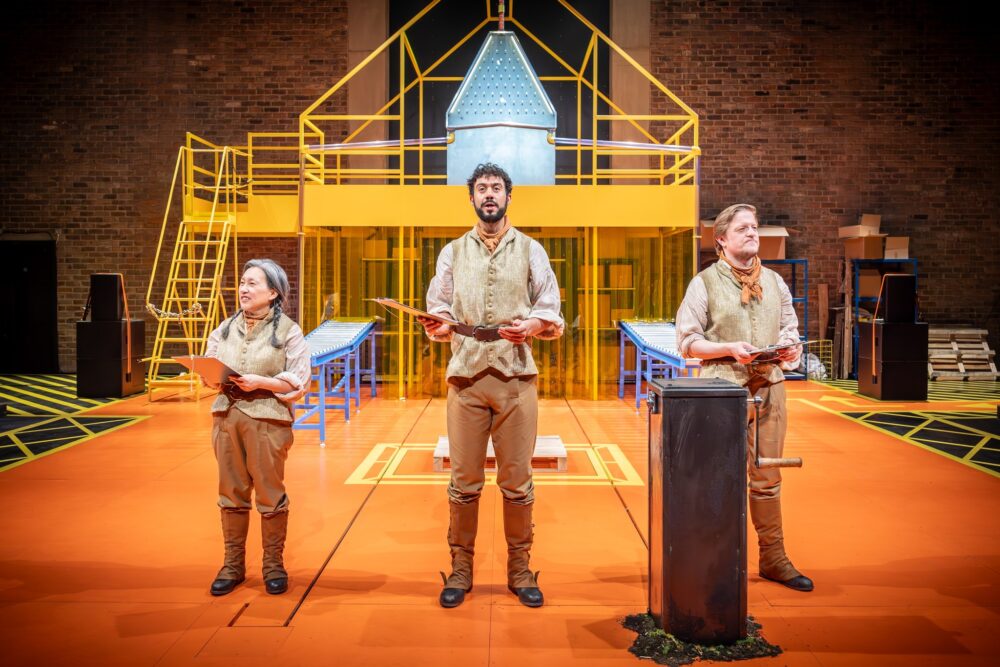
It’s a unique concept in keeping with the play’s theme of the uncertainty that the rise of machines has caused for generations, right up to today’s AI explosion.
Joe explains: “I was interested in this idea of how machines, and now algorithms, have control over our lives in a way that almost feels unavoidable.
“It does feel like we’re at a point where AI is going to do something incredibly different to the economy and be potentially damaging so we have this fear that technology could take away our work.
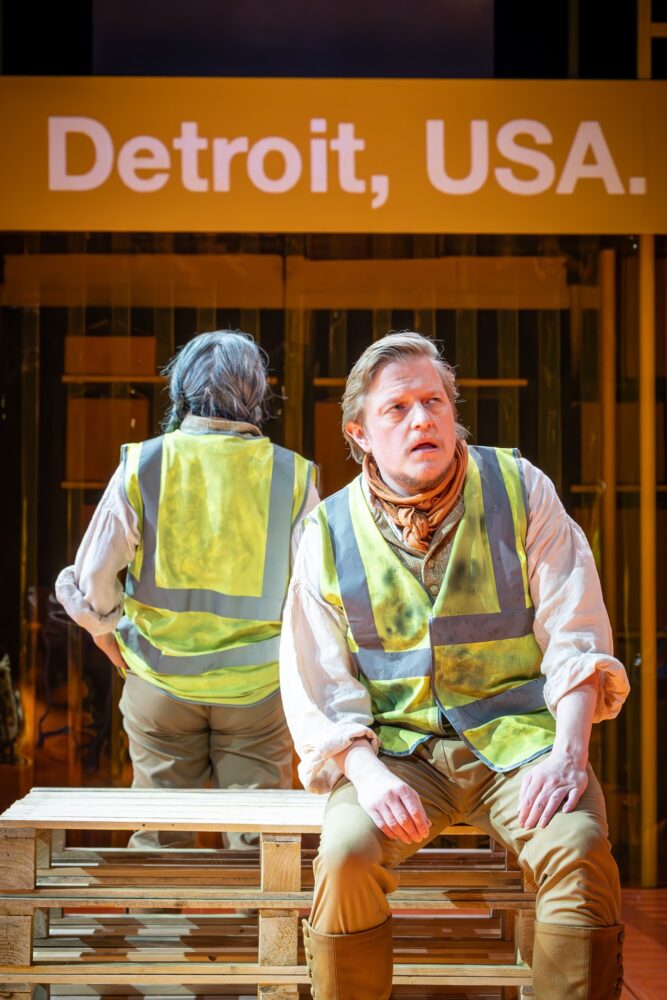
“The Luddites were the first documented group of people to deal with that, in their case in quite an active and violent way, but automation has left an impression for centuries.
“Initially the idea of having a machine randomly choose scenes was going to be alluded to but wasn’t actually going to happen. Then we talked about it and because it’s a play about work, I thought I should do the extra work and so do the actors, so audiences really get to see the craft and effort that goes into every performance.
“When you’re doing the same show every night, you become more polished as it goes on, but with this play there’s no guarantee of a scene cropping up. For instance, Shaun Mason plays Margaret Thatcher and his ability to transform is amazing but that scene only came up twice in the first 10 performances.
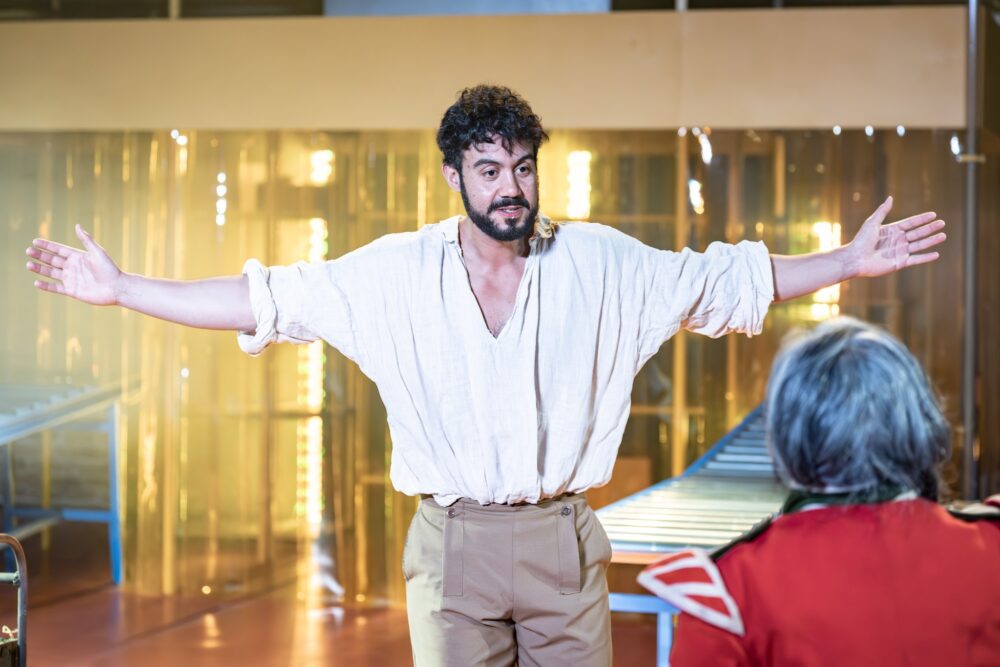
“Nothing is rigged which means the actors have to keep rehearsing the scenes they haven’t done for a few nights in case they get chosen so they do have to work incredibly hard.”
Joe wrote 23 scenes in the full script and 15 of them appear in each performance – the Luddite scenes are the constant and there are eight other randomly-picked ones around those.
“When I started writing the play I realised I would have to do a lot of historical research,” says Joe. “I read all about the Luddites, all the letters they sent, and also letters between Karl Marx and Frederick Engles. There’s a scene with Thatcher so I looked at a lot of her speeches and I watched documentaries about the closures of the car plants in Detroit.
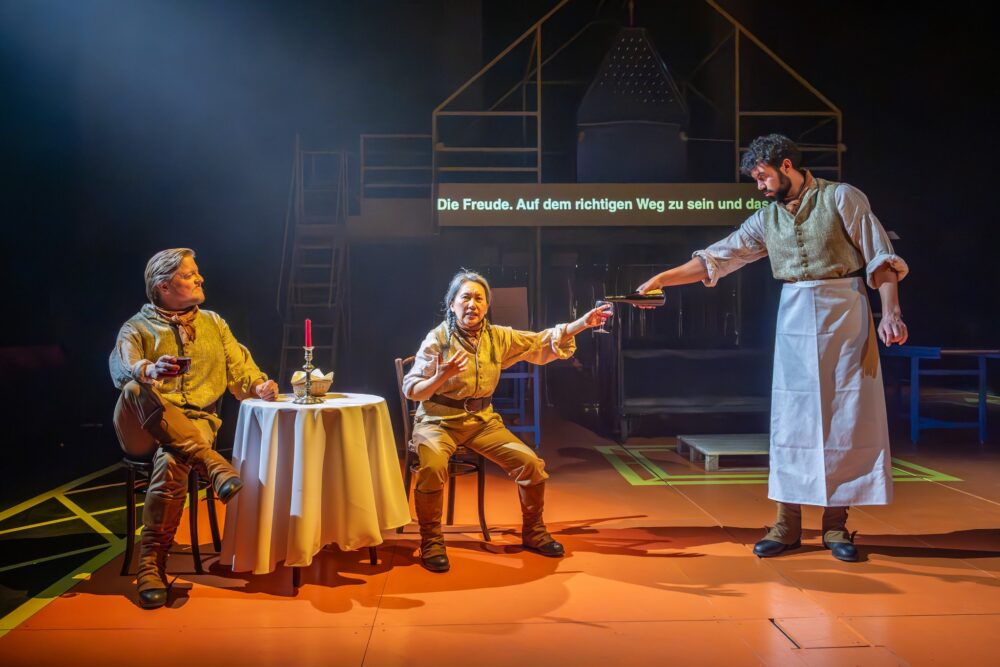
“Marx thought automation would lead to freedom because we’d have time to do things we enjoy. But in reality, when work security is taken away it feels like a lot of people are scrabbling around trying to make ends meet so there’s no easier life.
“We all have these dreams of winning the lottery and never working again, but there’s something about work that’s really important. When the miners and the dockers suffered job losses, it wasn’t just money that was taken away but also a sense of identity, of feeling useful and part of a community where everyone is pulling together.
“The idea of The Legend of Ned Ludd is a bit bonkers but it lands with people in different ways and they have different favourite scenes because everyone’s seeing it through their own personal lens.”




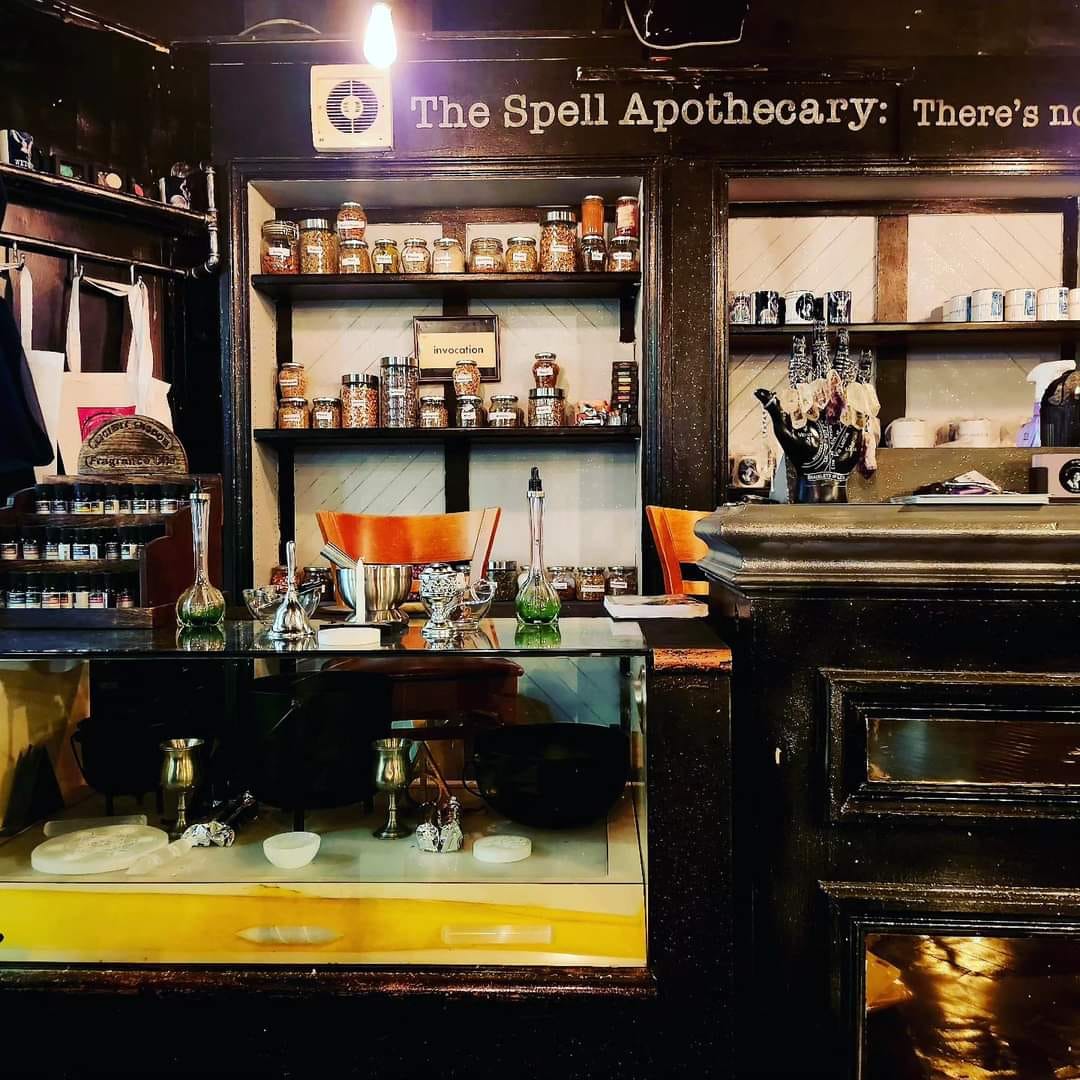
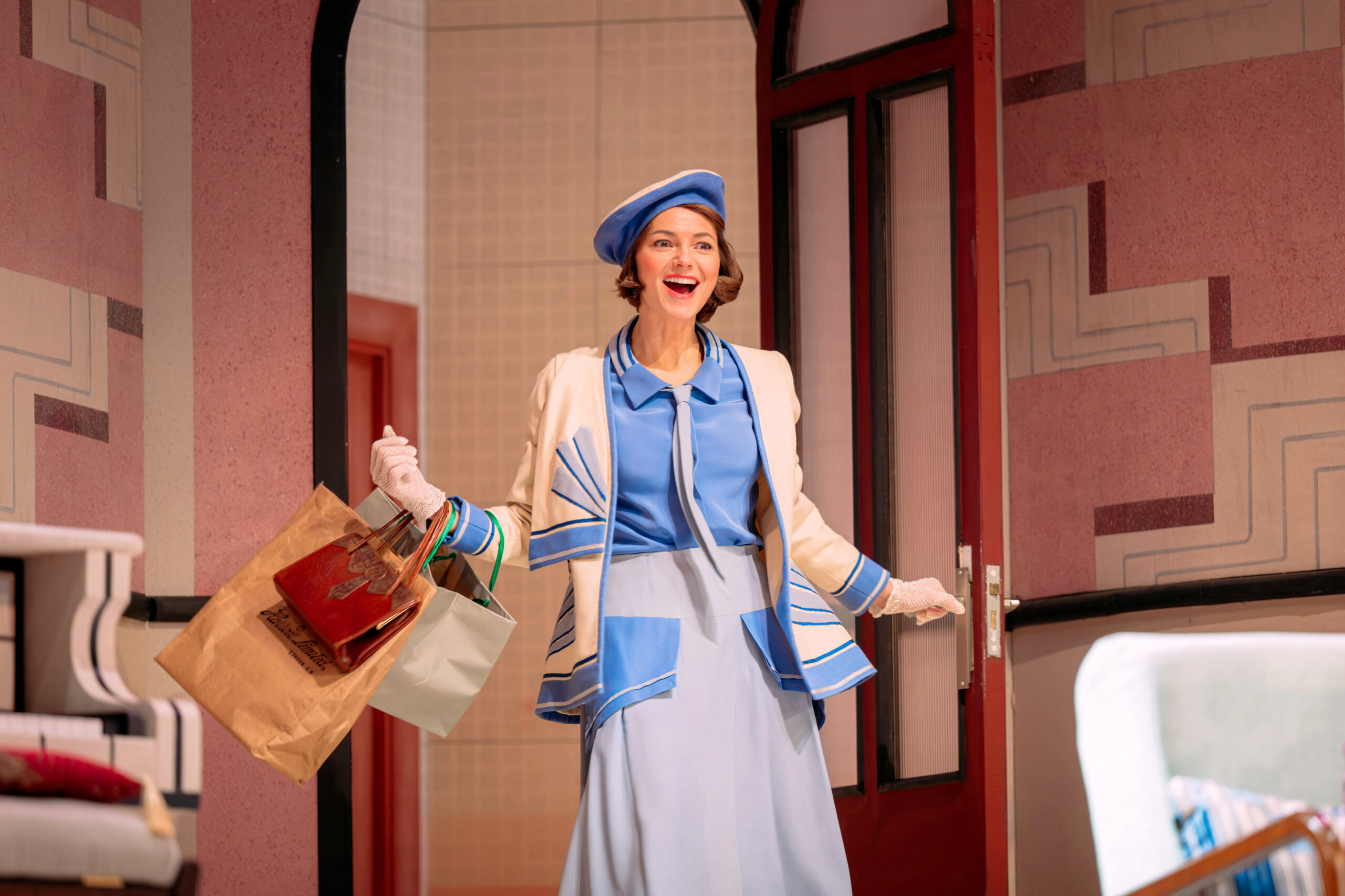
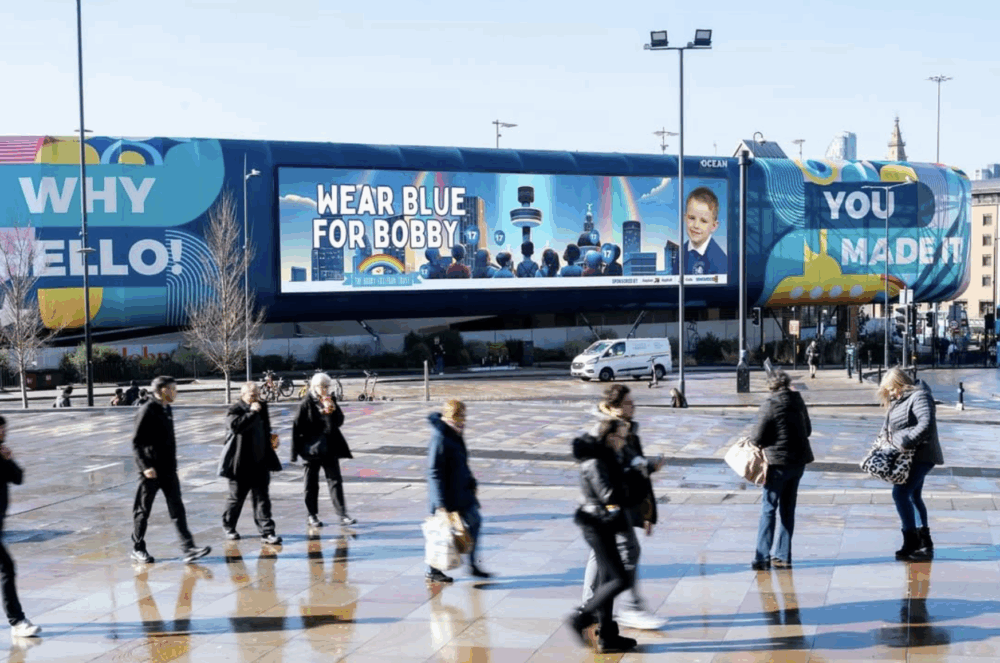


 Subscribe
Subscribe Follow Us
Follow Us Follow Us
Follow Us Follow Us
Follow Us Follow Us
Follow Us Follow Us
Follow Us











